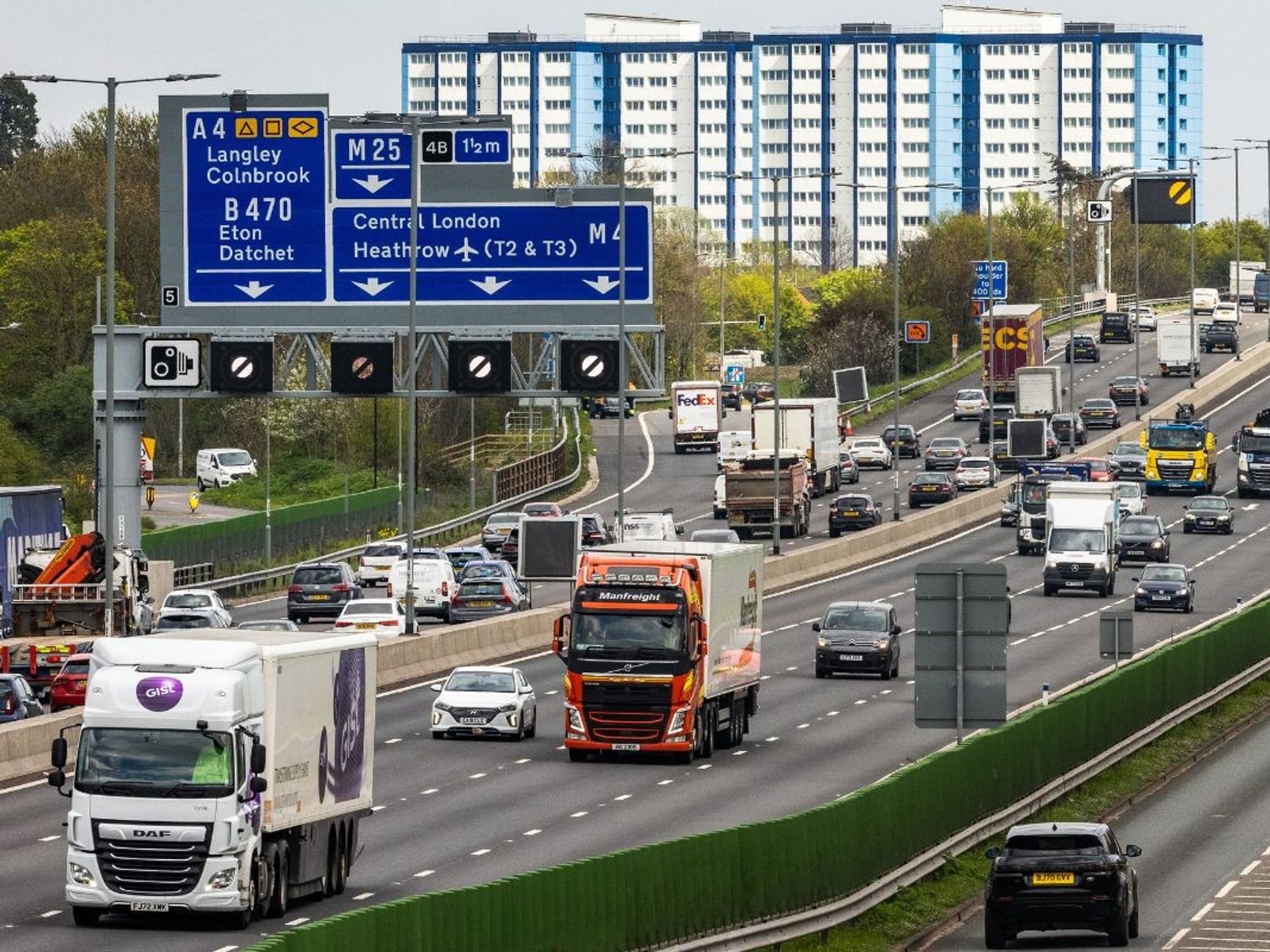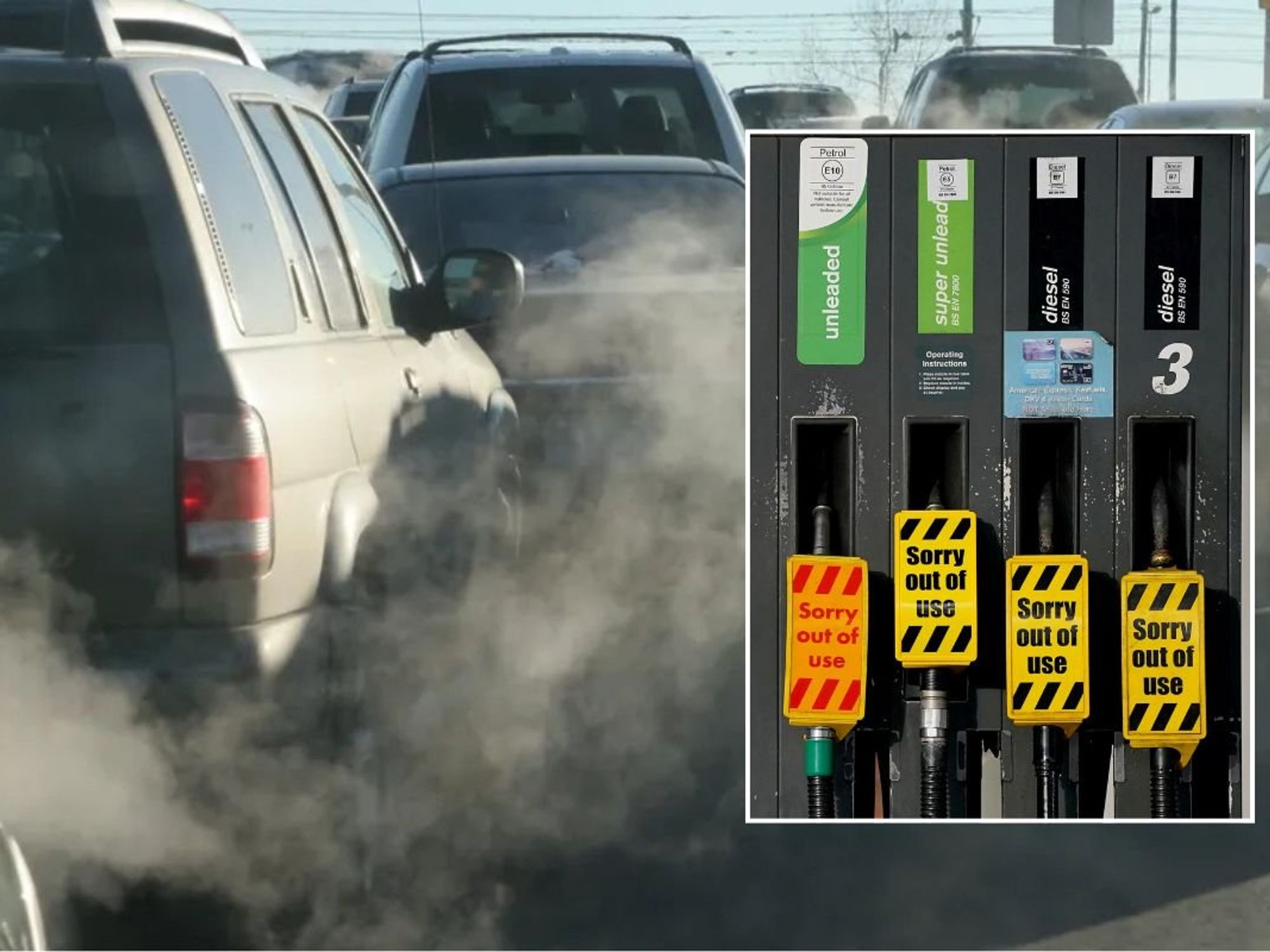Johnson defends energy relief package after Sunak warns bills could still rise in the future
The Chancellor Rishi Sunak said he 'doesn’t have a crystal ball' and warned households they will have to adjust to higher energy prices in the future as Boris defended the Governments package to tackle soaring energy prices.
Don't Miss
Most Read
Boris Johnson has defended the Government’s package to ease the impact of the cost-of-living crisis after the Chancellor said he could not rule out further rises later in the year.
Rishi Sunak on Thursday announced a £9 billion package, including a one-off repayable £200 discount and a £150 rebate on council tax bills, and £144 million to councils to support vulnerable households amid surging energy prices.
The Chancellor added he “doesn’t have a crystal ball” and warned households they will have to adjust to higher energy prices in the future.
Shadow chancellor Rachel Reeves branded it a “buy now, pay later scheme that loads up costs for tomorrow”.
The Prime Minister defended the measures as a “mega package”, adding: “I don’t think we have seen anything like it in recent memory.”
Speaking to 5 News, he said: “We know the cause, it’s been driven by inflation in energy costs around the world, particularly the gas price spike that we are seeing. We have got to help people, I think that Rishi’s package is extremely good.”
He did not directly answer a question, also raised in Parliament, about a windfall tax on fuel companies like Shell, which have profited from the spike in global prices.
He said the world is experiencing a “bumpy period post-Covid” with “inflation, blockages in supply chains as the global economy recovers”.
He added: “I think when it comes to taking huge sums of taxpayers’ money, £9.1 billion, transferring it to help people with the cost of their heating and their energy, everybody can see that that’s a massive commitment.”
At press conference on Thursday, Mr Sunak announced the package following word from Ofgem, the energy regulator, that prices are set to soar by 54% for 22 million households from the beginning of April, adding £693 to the annual costs of a typical household.
He later rejected calls for a windfall tax on energy companies making profits while customers struggle to pay rising bills.
The Chancellor told The Martin Lewis Money Show such a levy would “deter investment” in the North Sea, which he said was needed to boost the economy and employment levels.
Mr Lewis asked the Chancellor: “People have said… why the hell are they having to pay money back when energy companies are publishing – the big ones – record profits?”
Mr Sunak said the tax “does sound superficially appealing”, but added: “I don’t think a windfall tax is the right thing to do, most obviously because it will deter investment.”
Problems for households are compounded by inflation expected to hit 7.25% in April, according to new Bank of England forecasts.
Bank rate setters hiked the base interest rate from 0.25% to 0.5%, a move it hopes will take some pressure off households.
The Chancellor said there could be a further price hike later in the year due to an “unpredictable” energy market.
Mr Sunak also told a Downing Street press conference that energy price rises are “so significant” they will hit middle-income households as well as the poorest families.
Disposable incomes will fall by around 2%, according to Bank estimates, the worst impact since records began in 1990.
Increased energy bills, even with the new support from the Government, will push four million households into fuel poverty – double the current amount, according to the Resolution Foundation think tank.
The squeeze comes as oil giant Shell revealed a 14-fold increase in profits as the company benefitted from the spike in global prices.
Ofgem was forced to hike the energy price cap to a record £1,971 for a typical household on a standard tariff as gas prices soared to unprecedented highs.
For customers with prepayment meters the price cap will go up by £708 to £2,017, the regulator added.
Details of the Chancellor’s £200 rebate will be worked through following a consultation, but households will have to repay the cash with bill hikes of £40 per year over the five years from 2023.
Ministers are hopeful that wholesale energy prices will drop so households can pay back what they owe without a major rise in bills.
Some energy company insiders worry that the policy is too reliant on falls in global gas prices, after investment bank Goldman Sachs previously warned prices are likely to remain at twice their usual levels until 2025.
Mr Sunak’s £150 council tax rebate will cover homes in bands A to D, impacting 80% of households in England, he said.
The price cap increase includes a £68 charge per household to cover the costs of protecting millions of customers whose energy suppliers collapsed in recent months.
Ofgem had developed a way of spreading this charge over a longer period but scrapped the plan when it learnt of the Government’s action.
The Government has for weeks been assessing what it can do to help customers. Potential solutions have included loans to energy companies and cuts in VAT or levies on energy bills.
Ofgem also plans on Friday to set out new rules to allow it to change the energy price cap in between its regular six-month reviews.
The regulator pledged the power will only be used in exceptional circumstances, and five tests will have to be passed before it can step in.
It comes as Water UK is set to announce changes to the average water and sewerage bill in 2022-23 for households across England and Wales.
The price cap had already been set at a record high in October before the worst of the gas price spike had been seen in the market.
There are also worries about next winter, when experts predict bills could rise to as much as £2,329.











